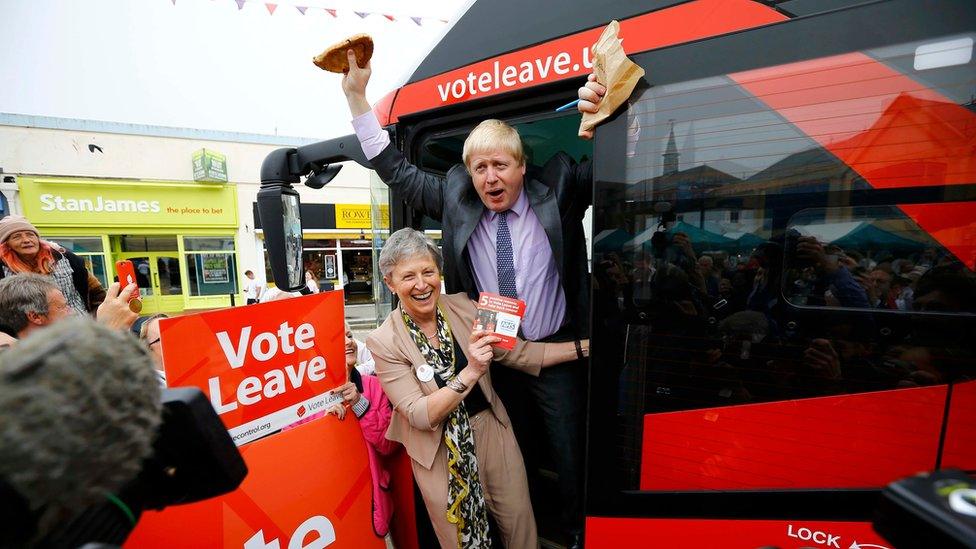Brexit 'contingency planning' under way says Osborne
- Published
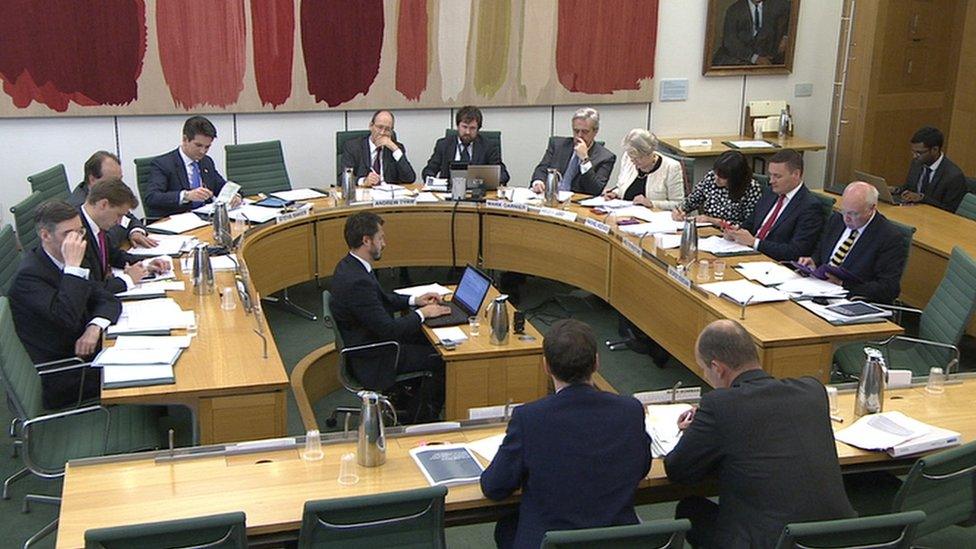
George Osborne has said contingency planning is taking place to anticipate the likely impact on the UK's financial stability of a vote to leave the EU.
The chancellor told MPs there would be a "number of impacts" on the financial system that would have to be addressed.
Economists have warned of market volatility and a sharp fall in sterling should there be a Leave vote.
The chancellor said it would be up to the Bank of England to consider appropriate monetary responses.
Mr Osborne, a key figure in the Remain campaign, has previously refused to be drawn on whether the Treasury and other public bodies were, in any way, preparing for the possibility of a Leave vote in the referendum on 23 June.
But during an appearance before the Commons Treasury committee, he said: "We are undertaking a lot of contingency planning for the immediate financial stability consequences if the country was to vote to leave."
It would, he said, be up to the Bank of England's monetary policy committee to decide whether there needed to be adjustments to commercial bank rates or a short-term injection of liquidity into the economy to mitigate the fall-out and help reassure markets.
Downing Street later insisted the government was not doing contingency planning on other policy matters such as trade negotiations.
During the session, he also attacked the Leave campaign's arguments, saying claims the UK would save £350m a week by leaving the EU were "completely specious" and the "overwhelming opinion" was the UK as a whole and households would be "poorer" outside the EU.
Leave campaigners have made the £350m figure a centrepiece of their campaign, saying that by ending the UK's annual contribution to the EU's budget it could free up cash to be spent on the NHS and other public services.
Boris Johnson on the Leave campaign trail
The figure has been described as "potentially misleading" by the UK's statistics watchdog which says it ignores key factors, such as the country's existing rebate on its budget contributions and the amount of EU funds already spent in Britain.
Speaking during a visit to Cornwall on Wednesday, leading Leave campaigner Boris Johnson said much of the UK's funding to the EU was "never seen again", suggesting it ended up being spent on "Greek tobacco farming and Spanish bull-fighting"
If the UK votes to leave, he said he could "guarantee" Britain's EU contributions would be spent on domestic priorities.
"With that net money back in our country we could fund things like the NHS, our science base, our academic health science centres even more generously than we currently do," he said.
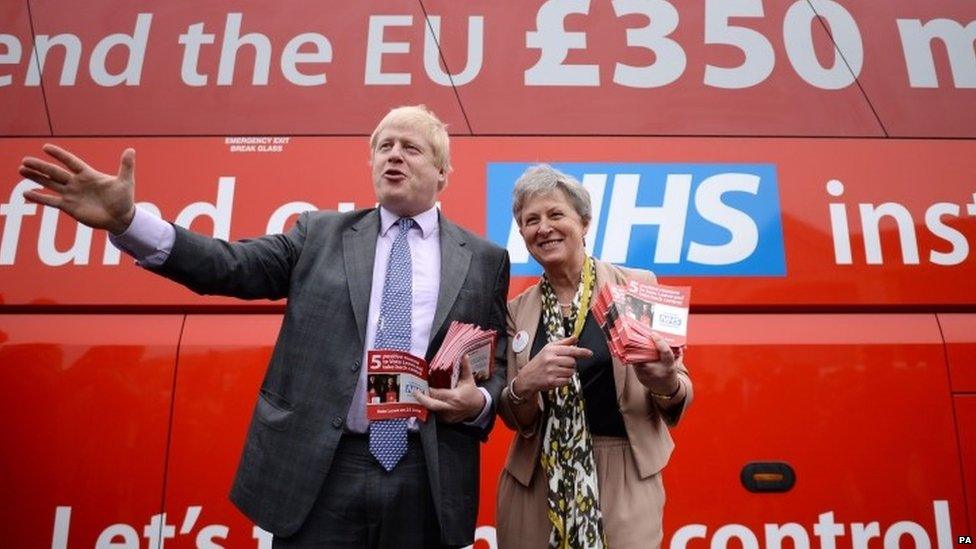
Boris Johnson and other Leave campaigners are standing by the £350m figure
But Mr Osborne said the Leave campaign had been warned before about the claim and contrasted it with what he said were serious warnings from "every credible financial institution" in the world, including the IMF and OECD, about the economic risks of leaving the EU.
Mr Osborne said any savings from EU exit would be "dwarfed" by the hit to the public finances from lower growth and corporate profitability - a shortfall the Treasury has estimated could be as large as £36bn.
But Conservative MP Jacob Rees-Mogg said the IMF's analysis of the UK economy had been flawed in the past and Mr Osborne seemed to be "in favour of the IMF when it agrees with you and less so when it doesn't".
He quoted figures suggesting that the UK's economic productivity had not been enhanced by EU membership.
But the chancellor said there was evidence that foreign investment in the UK had been put on hold pending the outcome of the referendum and that some of it would be "cancelled" in the event of a vote to leave.
During the session, he also said major mortgage lenders such as Halifax and Virgin Money shared his analysis that house prices would fall after a vote to leave in what he has warned would be a significant short-term shock to the housing market.
- Published11 May 2016
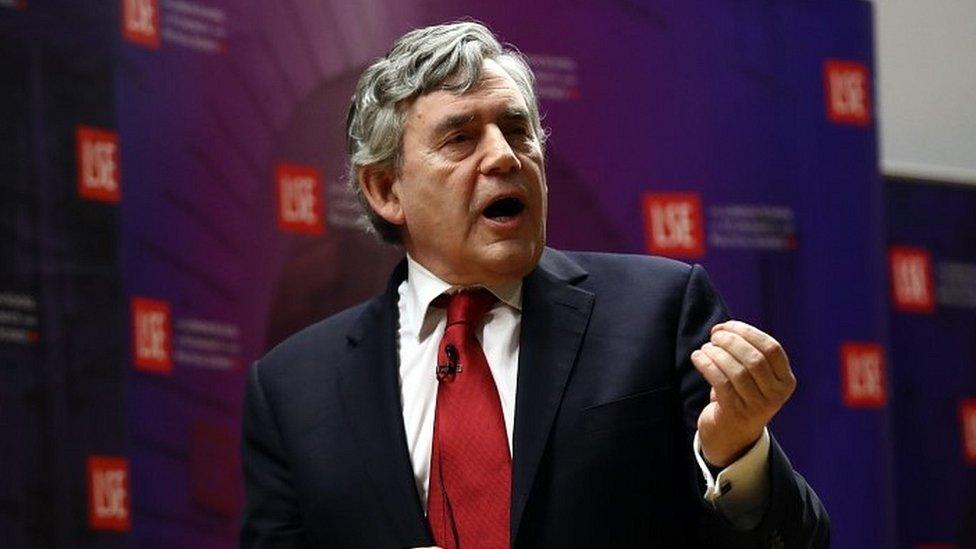
- Published11 May 2016
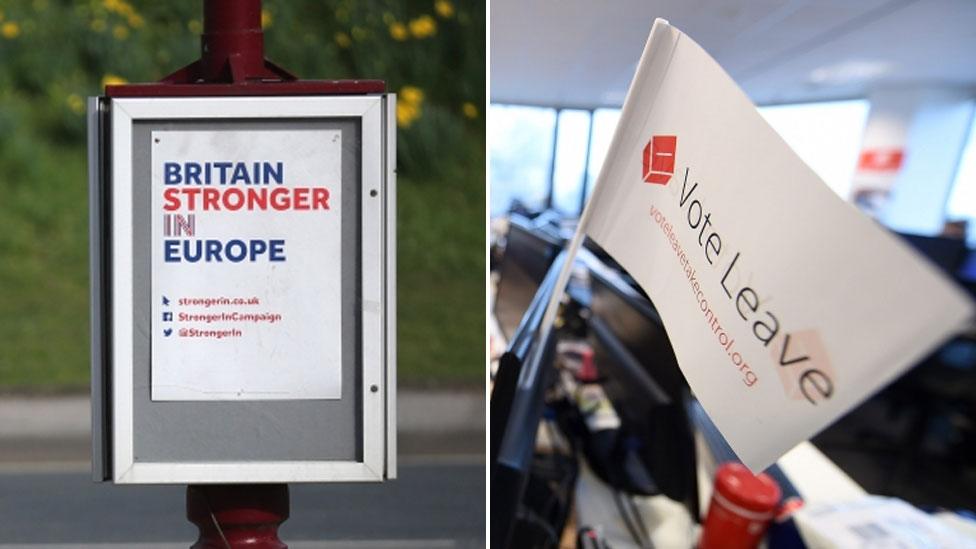
- Published11 May 2016
